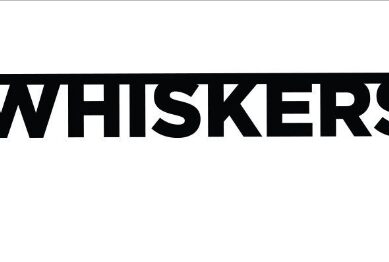
Mimi Partha Sarathy, MD, Sinhasi Consultants, shares her views on investment during tough times that we’re facing right now. Here are some financial tips that can help you survive through the current crisis when the markets are down.
“COVID19 – Market Crash – What should I do – Some Answers to Investor Questions?”
“Covid-19 is indeed a game changer and ‘shocking’ event in the way we all see our lives and live today, confined to our homes wondering what next. And, the Equity markets have crashed in just eight weeks and continue to remain extremely volatile and unpredictable.
Over the past one month, Large and Mid-cap indices have fallen by 35% and 50% respectively. This has led to a sharp correction in stock prices and NAVs of equity mutual funds significantly. And this sharp crash has happened just in eight weeks – unlike any previous market ‘crash’.
Everyone today is rightly working only on curtailing the spread of the Corona Virus, ensuring social distancing, saving lives, and the news is focussed on whether the curve is ‘flattening’ or spiking’ upwards with every passing day, across all countries including India. And with the lock down enforced across the world, some questions lurking in our minds are – when will normalcy resume? What will be the economic impact of Covid 19 and the lock downs on global economies and our own? What will be the ‘new’ normal? What will be the impact on our investments? Have I got ‘shock-absorbers’ for my money and investments?
What is most valuable to me today is my 22 years of experience as an Investment Adviser. And, there is no short cut to experience, especially for crisis management. Having been part of the financial service industry as an adviser during two earlier such ‘shocking’ global events namely the 2000 Tech Bubble Crash and the 2008 Sub-Prime Global Crisis, I understand and value even more these earlier experiences and their lessons and learnings. It is these great experiences and learnings that have cultivated resilient best practices combined with intuition to ensure that Dynamic Balance can always be practiced and maintained for sustainable financial success over the long term for our clients.
Though equity investments form only part of our financial plans, much of our focus is on our equity investments and the paper or notional losses that are seen during such crashes. And to see this notional loss is definitely painful and very challenging. At the same time the stock markets can be seen as one of ‘the’ best real time live indicators of a combination of both fundamental plus emotional factors.
We are indeed confident that this time too will pass. But in the meantime, this is the best time to ask important pertinent questions, which will help us become clearer about our finances and investments, so we feel more confident and ‘on top of our game’ with regard to our money and investments, even during these challenging times.
Dynamic Balance with money and investments with prudent resilient action – regular and event based, is the key to financial success with our plans as well as investing in equities. Warren Buffet’s famous quotes are worthy to note – “It is not necessary to do extraordinary things to get extraordinary results” & “Beware the investment activity that produces applause; the great moves are usually greeted by yawns.” “The things we DO or NOT DO might be small, simple, & boring acts of excellence. But they maybe just right and most prudent to do for long term sustainable success with our investments.
Covid 19 – Market Crash – Since predicting such events in the stock markets are difficult, do I have sufficient ‘shock-absorbers’ for my investments and money? Should we panic or remain calm with regard to our finances and investments?
This is a very important question. And the answers to this question are very relevant especially now.
The best ‘shock-absorber’ for your money and finances to manage stock market volatility is if you have a good Financial Plan in place, and if you stick to it! If you have a clear financial plan where your goals are clearly defined along with proper asset allocation and risk profiling, then you as an investor will surely be able to handle such a challenging situation. All we need to do is to stick to it if the plan has been prepared well by a competent financial planner. No doubt our money invested in equities will see negative returns for some time, since in such ‘shocking’ events the markets correct at a very rapid speed in a few trading sessions giving no time to exit. Investments in shares and equity mutual funds come with daily values and NAVs, and, are therefore very transparent for us to see – both daily ups and downs. We don’t give much thought to price corrections or crashes in real estate since we don’t see a ‘daily NAV’ for real estate. And if we did, we would have panicked perhaps even more.
But, our asset allocation into equity investments in our plans should be made with a time horizon of 5 years minimum, and only this will ensure that we are able to tide over whatever requirements we would need over the next 12 months. And past experience has clearly shown that because stock markets react rather badly to such ‘shocks’ with very sharp falls, they recover too, and to higher levels.
Some examples of Financial Goals are – My retirement plan, my pension during retirement, my children’s education, purchase of my house, upgrading my car, emergency fund (medical, etc).
Some examples of Asset allocation are:
Allocation between various asset classes i.e. equity, debt, real estate, gold, etc
Liquid (FDs, Mutual funds, shares, etc) VS illiquid assets (real estate)
Equity (shares, equity mutual funds, etc) VS Debt investments (FDs, debt mutual funds, etc)
Lock in Investments (PPF, PF, Structured Products, AIFs) VS Open-Ended Investments (Mutual funds, Shares).
Understanding market volatility and the ability to ‘stomach’ such sharp market corrections is Risk Profiling. Some investors maybe billionaires but cannot stomach market volatility or corrections and therefore have a low risk profile. Others who have only a few lakhs invested may be able to take 100% risk with their money and handle all these ‘shocks’ very well! Finally, it is a balanced approach to risk profiling based on financial goals which will lead to sustainable success of returns.
Time Horizon is also an important factor while planning investments. Trying to make a ‘quick buck’ may lead to disaster. Only your money which you do not need for a minimum period of 3 – to 5 years can be invested into equity markets or other risk related investments. This is indeed a golden rule one must follow.
As investment advisers, our main role is to ensure that Asset Allocation and Risk Profiling of every investor is maintained according to investor’s Financial Goals, Financial Plan & Risk Profiling with Time Horizon. What is most important is that irrespective of stock market movement, the financial goals of every client have to be met, based on his or her financial plan. Allocation into liquid vs illiquid assets, debt and equity investments, lock in vs open ended investments, etc must be clearly maintained.
Therefore, if you have had a good advisor who has prepared a sound long term holistic financial plan for you, defined your financial goals, along with asset allocation and risk profiling, and with contingency plans, then you will surely be able to tide over this challenging time without panic, but with calm.
Warren Buffet’s quote – “The years ahead will occasionally deliver major market declines — even panics — that will affect virtually all stocks. No one can tell you when these traumas will occur Predicting rain doesn’t count, building the ark does”.
Covid 19 – Market Crash – Why should I invest in equities? What role does equity and this volatility play in my investment plan?
Good news! Question Here, the answer is straightforward. We invest in Equities ONLY for higher returns than Fixed Deposits and Debt investments!
If we are happy with only FD returns where our capital is protected and we do not see any ups and downs, this is perfectly fine. Returns on debt related investments and FDs are comparatively low and are steady – around 4% to 7% per annum today where our capital is protected with no major fluctuations, unless there is a rate cut or hike which too is usually very marginal. And these returns are usually lower than inflation.
On the other hand, it is also a good thing to ask for more returns. It is but natural that we all want higher returns than FDs and so we invest in other investments such as equities, gold, real estate, etc. But surely here there has to be a catch and risk which we must understand clearly and also accept if we want these higher returns. This is why Risk–Profiling plays a very important role in financial planning.
Risk profiling needs to be done for not only planning the time horizon for each investment but also to understand our emotions and attitudes towards being able to handle risk. Some investors maybe very rich millionaires, but cannot stomach market volatility or corrections and therefore have a low risk profile. Others who have only a few lakhs invested may be able to take 100% risk with their money and handle all these ‘shocks’ very well! Finally, it is a balanced approach to risk profiling based on our financial goals which will lead to sustainable success of returns.
Returns of equity can be defined in this simple formula i.e. Equity Returns = GDP + Inflation.
Therefore, we can expect around 10 – 12% per annum returns from equity over a 5 to 7-year period. This is a differential of approximately 4 – 5% more than FDs or Debt investments per year. If this difference compounding on the regular basis, it will add great value to your wealth. great way to add to your wealth.
Below is a table comparing the performance of Sensex VS FD returns over the past 40 years for your reference. As you can see long term investing in equities almost doubles returns.
Here are some important FACTS for equity markets and equity investments (and risk related investments) which we must accept if we wish to invest in them and also benefit from them:
It is NOT about timing the market but about the time spent IN the market that will give you returns from equity. (minimum investment period to get returns from sound equity investments is 5 to 7 years)
Volatility is the very nature of equity investments.
‘Shocks’ are part of the stock market and we must be ready to tide over this phase with prudent plans and actions.
Returns from equity will NEVER be linear and year-on-year. They will come lumpy over a 5 to 7 year period.
Patience and Discipline are a must to achieve success in equity investing.
Warren Buffet’s quotes on equity investing – “If you aren’t willing to own a stock for ten years, don’t even think about owning it for ten minutes.” & “When we own portions of outstanding businesses with outstanding managements, our favourite holding period is forever.”
Some investors clearly understand the markets so well and ride all the waves and storms and come out winners. Perhaps the only way to understand this is ‘experience’. And this we can understand only by remaining invested in the markets for a minimum period of 10 years. So, it might surely be tough for a new investor in equities to understand such shocking corrections. But there is no short cut to experience. During this experience period, you will experience such ‘shocks’ too as we have seen over the past few decades. These shocks can be compared to the delivery pains felt by a mother while giving birth. It is something no one can explain but only when one experiences it will you know it. And at the same time, post this pain the joy the child brings to the mother who endured this immense intense pain is again unexplainable. Also, this mother is willing to do this again, and again and have more children. Investing in equity markets and riding such shocks and storms can, in some way, be compared to this.
As Warren Buffet says – “You can’t produce a baby in one month by getting nine women pregnant.”
And if we are investing in sound equity / balanced mutual funds, they themselves are also changing their portfolios to manage such situations. They are not static portfolios, – in such times they revise their portfolios more often as required by changing the holdings to ensure that when the upswing happens, they will be winners again. The same is seen in well managed portfolio management schemes where good fund managers may have created cash weeks before the crash to take advantage of adding into good stocks on market corrections.
Covid 19 – Market Crash – Should I move all my money to Debt or FDs now and be safe?
Here, one can assume that you already have equity investments which are now negative and therefore you intend to move it into debt or FDs.
Here are the scenarios in which you do not have to panic and move out money from equity to Debt or FDs;
If your financial plan is in place and ONLY the money which you do not require for the next 3 to 5 years plus has been invested into equity investments, or other risk-related investments.
If your asset allocation into debt VS Equity is done properly by your advisor.
If you have sufficient funds to take care your short-term requirements for the next 3 years.
Equity market returns will never be linear. They will come lumpy – perhaps within even a 1 or 2 year period, but out of over a 5 – 7 year period. And this is the law of the nature of equity market returns which we must accept as equity investors.
Herd mentality, especially for understanding investing behaviour patterns, has been spoken about many times which happens all the time and during market cycles of ups and downs. We may get carried away with the actions of others and follow them, which may lead to huge losses for us. Many investors may have exited their equity investments during such crashes, and may have actually booked huge losses. Investors rush into equity investing when everyone is talking about it, and run away, panic and exit from equity when others panic. With the help of an advisor, we must strike a good dynamic balance with prudent action for us to be able to tide over such times.
Also, it surely may be tempting to invest all our funds into equity in current lower market levels. However, we must stick to our financial plan, asset allocation, risk profile, and fund requirement, more so at such times.
As Warren Buffet says – “The most important quality for an investor is temperament, not intellect. You need a temperament that neither derives great pleasure from being with the crowd or against the crowd.”
And it is NOT about timing the market, but the amount of QUALITY TIME IN the market which rewards equity investing. Once again Dynamic Balance is the prudent action to take at all times.
Warren Buffet’s quote on market shocks and corrections – “In the 20th century, the United States endured two world wars and other traumatic and expensive military conflicts; the Depression; a dozen or so recessions and financial panics; oil shocks; a flu epidemic; and the resignation of a disgraced president. Yet the Dow rose from 66 to 11,497.”
Covid 19 – Market Crash – Do I have sufficient money or funds for the next 12 months to cover base expenses?
Good news again! Here again the answer is straightforward.
If your financial plan is in place and a contingency or emergency fund has been maintained in your plan for any medical or family emergencies, based on your plan, risk profile and investment time horizon, a certain amount of funds in cash/liquid funds, 1 year FDs, etc should have been kept by default in your plan.
If anything else, this current crisis in the market had indeed been a great teacher to us. One lesson that it clearly taught to all of us is the need to maintain an emergency fund or contingency fund which will surely earn low returns i.e. around 4% – 5% only, but can be anything between 6 months to 12 months of your monthly basic expenses, as we may experience such ‘shocking events’ possibly more frequently. These funds can be invested into a cash/ liquid fund/ ST Debt Fund or a short-term FD which will earn only modest returns, and can be liquidated immediately with a few days.
Covid 19 – Market Crash – Has the Covid 19 event caused a change in my financial goals, financial plans, and my risk profile?
This again is important for us to spend some time on and reflect during the lock-down.
Reasons for you to re-look at your FINANCIAL PLAN, investment plan and asset allocation:
Change in my current Job or employment
Reduction in salary
Emergency expenses incurred due to ill-health, travel, etc during this challenging time.
Reasons for you to re-look at your RISK PROFILE:
Stress and panic with the sharp market corrections
Stress and panic caused by erosion in the value of your equity investments seen in investment updates during such times
An investor’s risk profile is based on two important factors:
Analytical factors – Risk profile based on financial goals.
Behavioural factors – Risk profile based on Investor’s behaviour across market cycles of ups and downs.
And the stock market movement is also based on a combination of fundamental and emotional factors.
Risk profiling for financial plans is mainly based on the time horizon for achieving financial goals set in the plan. For example, if the financial goal of retirement is in 10 years, then investments can be made in equity related investments since the time horizon is more than 5 years. For short term goals such as children’s education in 2 years or purchase of home in 1 year, short term FDs or liquid / cash funds is recommended.
Risk profiling based on investor’s behaviour is very important. The objective of us as advisors is to ensure ‘you feel on top of your game’ with regard to your money and investments, without stress and panic. Sometimes we may think that we have the ability to withstand and tolerate such ‘shocking’ events and market volatility which may also prolong over many months, like we have seen over the past 12 to 18 months now. And even though we have a financial plan in place we may not be able to endure sharp volatility and may also exit at market lows which may cause huge losses to investors. And this is surely not recommended. Therefore, understanding our own emotions, and sentiments towards such situations and market volatility is very important for us to not only avoid stress, but also avoid losses. This current situation of a ‘lock-down’ at our homes, is indeed a good time for us to reflect on our emotions and understand ourselves better, which will surely be most important for risk profiling.
Following best practices of Dynamic Balance with competent and correct action during market peaks and lows for our equity investments, and sticking to our financial plans will ensure that we not achieve our financial goals, but also achieve sound equity returns.
Covid 19 – Market Crash – What should I do about my investments with all the flood of news that I am hearing and the panic I am seeing all around me?
This question is better answered if we are able to speak to our financial advisors. This is surely the time to pick up the phone as many times as you wish and call your financial advisors and ask all the questions you want. Ask all the questions that have been mentioned above in this article so that you feel comfortable and ‘on top of your game’. And an experienced financial advisor will be able to provide you with the right answers. Ask more questions if you still feel uncomfortable. There is indeed no doubt that this current situation of Covid 19 is indeed a ‘shock’ and seeing such negative returns on portfolios is very painful. Many investors may have not seen such ‘shocking’ incidents especially those who have entered equity investments after 2008. But if there is a financial plan in place, with asset allocation and risk profiling with time horizon planned, this time too will pass and we will surely be able to tide this time with balance and calm and come out as winners. Again it is not about timing the market, but about the time you spend in the market that will ensure you come out as a winner in equity investing.
Some pointers:
News is more general, and is indeed very important for us to know for our information, knowledge and safety.
Focus on the correct and right news that will help us make right decisions for our finances and money.
Avoid Herd Mentality behaviour during this time since each one of us in unique with special financial goals and plans.
Spend time to reflect on what is really going to affect my money and finances as per my financial plan and goals so that if any changes are required, they too can be planned well.
Warren Buffet’s quote – “In the 20th century, the United States endured two world wars and other traumatic and expensive military conflicts; the Depression; a dozen or so recessions and financial panics; oil shocks; a flu epidemic; and the resignation of a disgraced president. Yet the Dow rose from 66 to 11,497.”



































